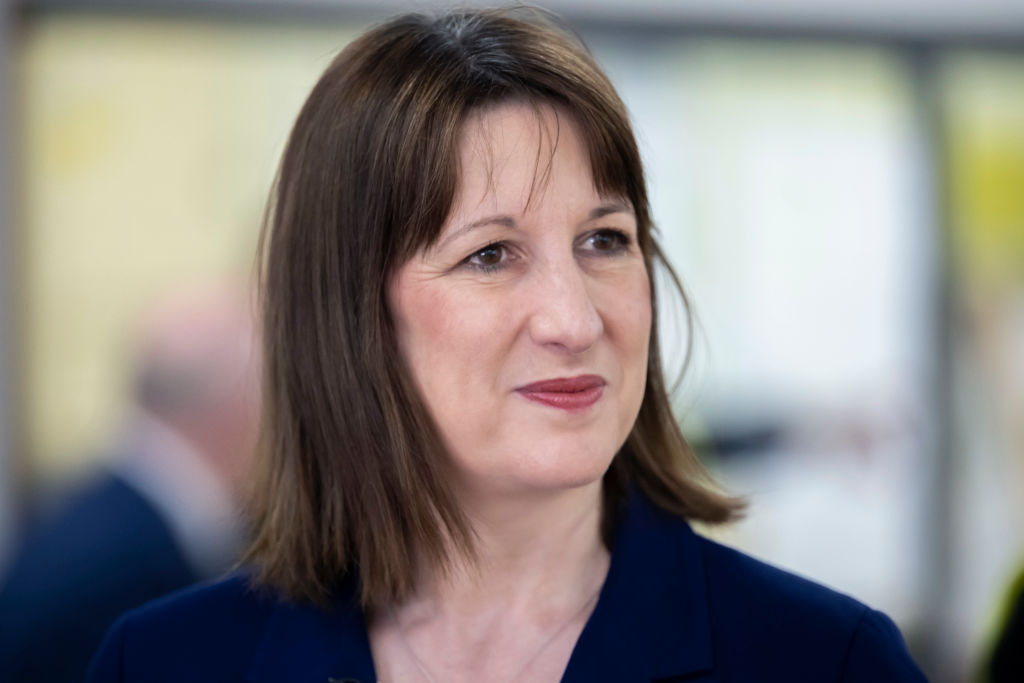Family left with £20k IHT bill because of out-of-date tax advice
Frozen tax thresholds and dated guidance helped drag the estate into an inheritance tax liability despite extensive use of gifting to avoid a bill


Get the latest financial news, insights and expert analysis from our award-winning MoneyWeek team, to help you understand what really matters when it comes to your finances.
You are now subscribed
Your newsletter sign-up was successful
Want to add more newsletters?

Twice daily
MoneyWeek
Get the latest financial news, insights and expert analysis from our award-winning MoneyWeek team, to help you understand what really matters when it comes to your finances.

Four times a week
Look After My Bills
Sign up to our free money-saving newsletter, filled with the latest news and expert advice to help you find the best tips and deals for managing your bills. Start saving today!
A family has told MoneyWeek how they were left having to pay a £20,000 inheritance tax bill after their mother died because she had relied on informal tax advice from a former accountant.
When Jane Smith, not her real name, died in 2021, she thought she had got her affairs so well in order that her four children would have no inheritance tax to pay.
This included selling her second home several years before she died so that she would only have one property, her main residence, and using the proceeds to give family and friends gifts during her lifetime.
MoneyWeek
Subscribe to MoneyWeek today and get your first six magazine issues absolutely FREE

Sign up to Money Morning
Don't miss the latest investment and personal finances news, market analysis, plus money-saving tips with our free twice-daily newsletter
Don't miss the latest investment and personal finances news, market analysis, plus money-saving tips with our free twice-daily newsletter
Smith was so organised with her paperwork she even arranged it so when she died, her family wouldn’t have to pay an accountant or solicitor to file for probate.
However undermining all of this diligent planning to reduce the IHT bill was an outdated valuation of her estate, and tax advice from an accountant who had retired many years before.
Michael Henry, principal associate at law firm Nockolds, said: “The simplest way to prevent potential issues and make sure your estate is distributed as you intend, and without unforeseen tax implications, is to make a will after receiving professional advice and keep it updated.
“Non-regulated will writers, and those who have left that area of work, are not subject to the same codes and requirements, which can lead to problems.”
Impact of frozen inheritance tax thresholds
The former accountant had advised that, based on the value of her estate, Smith’s family wouldn't have to pay anything in inheritance tax when she died.
This was true when they first wrote her will and Smith took the informal advice. However as time passed and the IHT-free thresholds remained frozen while property values increased, the former accountant didn't update their advice – which was no longer correct when Smith died.
IHT thresholds – the £325,000 nil-rate band and the £175,000 main residence nil-rate band – have been frozen since April 2021, and will remain so until 2030, dragging more estates into paying IHT as property prices rise.
Smith’s property was worth about £130,000 more than it was when she first wrote her will a decade before, which put the estate over the threshold for paying inheritance tax, and meant there was a bill of £20,000 to pay when she died.
Smith's family – concerned the advice was no longer sound – had requested the property be put in trust a couple of years prior to her death.
But that didn't happen because Smith was so sure – based on repeated advice from the former accountant – that her estate wasn’t going to be over the IHT threshold.
The issue was further complicated by a reluctance among the family members to discuss Smith’s death with her while she was still alive.
One family member, who was executor of Smith’s will, told MoneyWeek: “I knew how much effort she had put into minimising the inheritance tax and how much thought she'd put into the whole thing.
“I had an inkling something was wrong with the advice. But the family just didn't want to talk about it, and so I dropped it.”
They added the mistake made the bereavement even more difficult to manage.
“It's very difficult to balance, grieving with your family and obviously just all the emotions that come with that human aspect, and then also managing the finances and explaining that to the family,” they said.
The dangers of bad IHT advice
People looking for tax advice often believe the market is regulated like professions such as financial services. However in contrast to most other developed countries and other business sectors, there is no statutory regulation of the tax advice market in the UK.
Almost anyone can start providing tax advice and services to clients and can do so with limited or no oversight if they are not a member of a professional body.
Most tax practitioners are competent and adhere to professional standards. Many belong to established professional bodies and are subject to their oversight.
However, some tax practitioners do not meet professional standards, and provide substandard advice and services.
This can also be true of former or retired accountants who no longer keep up with the latest changes in tax regulations or best practice.
Getting it wrong can be expensive – as the Smith’s discovered – and could even risk an investigation by HMRC. The tax office issued a third more enquiries about inheritance tax last year in a bid to crack down on evasion, though most cases were closed with no further action required.
How to find a good IHT accountant
To find an accountant in the UK, start by utilising online directories of professional bodies like the Institute of Chartered Accountants of England and Wales (ICAEW), or the Association of Chartered Certified Accountants (ACCA), or the Chartered Institute of Management Accountants (CIMA).
You could also consider using a matching service like Unbiased which will match you with an accountant based on your area of need, for example inheritance tax.
When you find an accountant, verify their qualifications and membership with a recognised professional body.
Will I pay inheritance tax?
Most people don’t end up paying IHT on their estate because their assets fall within the available exemptions, known as nil-rate bands.
- Everyone has a £325,000 tax-free nil rate band.
- Homeowners who leave their home to descendants can get a residence nil-rate band of £175,000, allowing them to leave up to £500,000 tax-free. This allowance reduces by £1 for £2 your estate exceeds £2 million.
- Married couples and civil partners can enjoy two allowances, passing any used nil rate band to their spouse - they therefore can pass on up to £1 million without paying IHT.
- Any assets over the available nil rate bands will be charged 40% IHT.
Frozen inheritance tax thresholds and rising house prices, as well as upcoming changes to business property relief (BPR) and agricultural property relief (APR) from April 2026, mean more people are set to be affected by the levy in the future.
Get the latest financial news, insights and expert analysis from our award-winning MoneyWeek team, to help you understand what really matters when it comes to your finances.
Laura Miller is an experienced financial and business journalist. Formerly on staff at the Daily Telegraph, her freelance work now appears in the money pages of all the national newspapers. She endeavours to make money issues easy to understand for everyone, and to do justice to the people who regularly trust her to tell their stories. She lives by the sea in Aberystwyth. You can find her tweeting @thatlaurawrites
-
 Should you buy an active ETF?
Should you buy an active ETF?ETFs are often mischaracterised as passive products, but they can be a convenient way to add active management to your portfolio
-
 Power up your pension before 5 April – easy ways to save before the tax year end
Power up your pension before 5 April – easy ways to save before the tax year endWith the end of the tax year looming, pension savers currently have a window to review and maximise what’s going into their retirement funds – we look at how
-
 Pension inheritance tax paperwork nightmare – how to prepare to avoid penalties
Pension inheritance tax paperwork nightmare – how to prepare to avoid penaltiesPensions will be included in inheritance tax calculations from April 2027 and in a shock move, your executors will have to shoulder the burden of finding all your unused pots
-
 Little-known way inheritance tax pension raid could put thousands of businesses at risk – ‘issue is flying under the radar’
Little-known way inheritance tax pension raid could put thousands of businesses at risk – ‘issue is flying under the radar’Changes to inheritance tax rules could wipe out 15,000 businesses where owners put their premises in their pension, experts have warned
-
 Will chancellor Rachel Reeves reverse non-dom inheritance tax changes?
Will chancellor Rachel Reeves reverse non-dom inheritance tax changes?The end of the non-dom tax regime is already causing a UK wealth exodus, data suggests, but chancellor Rachel Reeves may make changes to soften the blow of reforms
-
 Family faces £1 million inheritance tax bill over widespread issue with holiday lets
Family faces £1 million inheritance tax bill over widespread issue with holiday letsMany bereaved families with furnished holiday lets are unable to claim business property relief and have to pay inheritance tax, lawyers say.
-
 HMRC opens 1,000 more inheritance tax probes – what to do if it happens to you
HMRC opens 1,000 more inheritance tax probes – what to do if it happens to youEnquiries into inheritance tax owed have jumped by over a third in just one year, but there has been in a decrease in the proportion of investigations leading to higher bills
-
 Nine ways to reduce your inheritance tax bill
Nine ways to reduce your inheritance tax billThe government has collected a record amount of inheritance tax in recent years – but these steps could help you cut your bill
